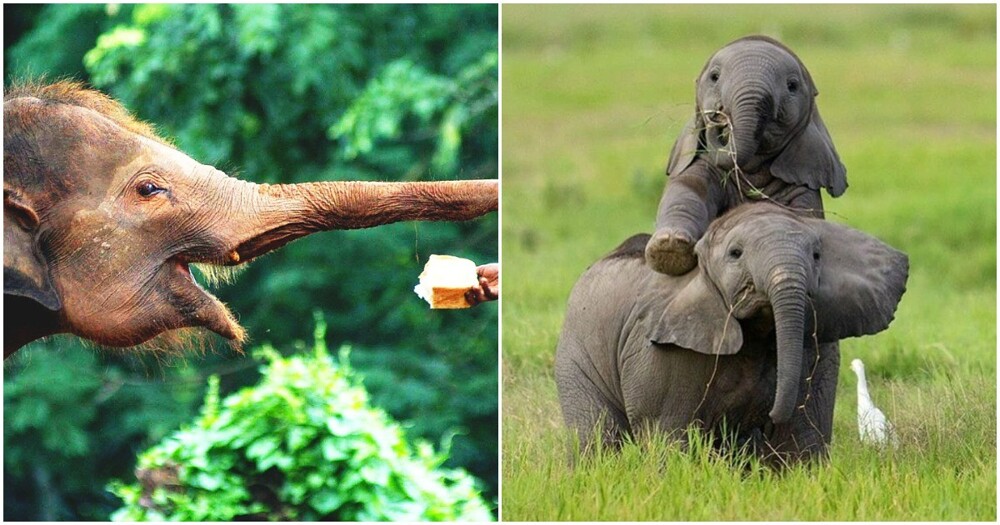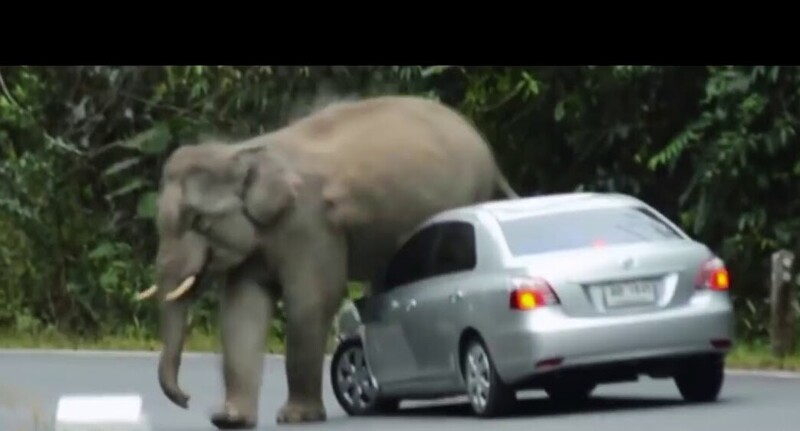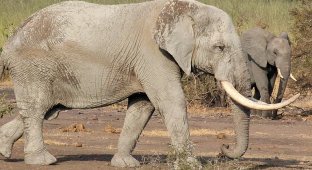Big and smart: why we love elephants (9 photos + 1 video)
They give the impression of calm confidence, kindness and wisdom. But despite their impressive size, elephants need to be protected. For many centuries, gentle giants were killed for meat and tusk, even though killing them, in many cultures, resulted in serious punishment. 
Today, elephants are on the verge of extinction due to drought and deforestation.
And the tusks that poachers hunt for never stop growing, so they strive to find the oldest elephant. The elephants themselves use them to dig up the roots of certain trees for food and to defend themselves when attacked.
About 20 thousand African elephants are killed by poachers every year. 
Before we talk about the kindness of elephants, it is worth noting that wild animals often attack people when they invade their territories, for example, during the expansion of agricultural zones. This seriously disrupts the usual migration routes of elephants. If farmers, trying to protect their land, shoot at one of the members of the herd, then the rest of the elephants stand around the killed one, making sad sounds, and then they all go to the killers to take revenge. 
Elephants have phenomenal cognitive abilities. They perfectly remember human faces and various events, and they can remember them even after decades. They are also one of the few animals that are able not only to recognize themselves in the mirror, but also to record changes. An experiment was carried out when a mirror was placed in the habitat of the elephants and after they all looked into it, strokes of paint were applied to some of the faces. When the marked elephant approached the mirror again, it ran its trunk along the mirror where there was a smear in the reflection. That is, they have self-awareness - an understanding of who they are and what they look like. 
For eared giants, sociability is an indispensable element in life and communication with their relatives is very important for them. They can make a wide variety of sounds for communication, including infrasound (frequency from 1 to 20 Hertz), inaudible to humans. Elephants are capable of transmitting information to their relatives located within a radius of 10 km.
In addition to sounds, tactility is important for elephants - from communication between mother and baby elephant, ending with greetings of relatives. The mother strokes the baby with her trunk and shows her love, and adult elephants greet each other by hugging each other with their trunks or stroking each other with them. 
By the way, elephants simply love games, which also indicates a very high intelligence. Also, during long observations, it turned out that elephants experience emotions similar to human ones. They rejoice when they meet members of their herd and they are the only ones who have real funerals; elephants generally understand the concept of death. Giants grieve for their relatives and friends, come to the graves and are interested in the bones of those who died a long time ago. 
Interestingly, elephants have cause-and-effect relationships and feelings of guilt. There is a known case when one of the shepherds, through carelessness, came too close to the herd. The head of the herd immediately rushed to defend her own, knocked down the shepherd and broke his leg. But immediately after this, the elephant drove all the other elephants away from the man, dragged him into the shadows and protected him. The rescuers were not immediately able to get to the victim, and the elephant only glanced at the shepherd and sometimes lightly touched him with her trunk. 
There was another case: an elephant refused to obey the driver’s command and even the threat of punishment did not work. The smart animal understood that if the command was carried out, the dog would die if it fell into the hole. The elephant waited until the people realized the reason for his behavior, pulled out the dog, and only then carried out the command. 
A free-living elephant eats approximately 300 kg of grass and leaves per day. In captivity, he can eat 10 kg of vegetables, 10 kg of bread, and about 30 kg of hay. He needs from 100 to 300 liters of water per day.
With such a mass, elephants can run quite fast: 34-45 km/h.
Unfortunately, instead of the 40 species of elephants that once existed, there are now only three in the world: Indian, African and forest. In a number of African countries, hunting elephants is allowed to control the population, but this method is barbaric and ineffective, according to environmental organizations.
Musician Paul Barton from England is very fond of elephants. He moved to Thailand when, having come on vacation for a couple of months, he met his love there and decided to stay.
Paul accidentally found out that elephants really love music and decided to conduct an experiment: he asked to bring a piano to the part of the forest where elderly elephants live and began playing classical music there. The animals slowly began to come closer to the instrument, waving their trunks and ears to the beat of the melody. Since then, Paul has been regularly coming to play beautiful music for the elderly elephants for many years.






















